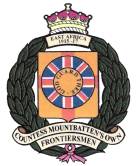 |
Legion of Frontiersmen of the Commonwealth
by 2Lt Geoff Blackburn
Patron: Countess the Rt Hon Mountbatten of Burma CBE CD JP DL AMM |
|
This is currently being researched and under construction. The following text is drawn from an existing Legion handbook.
In the fair garden of our civilisation, where all the fruits of human endeavour ripen for the welfare of the people, there grows a little weed called PATRIOTISM. Shadowed by the growth of hardier plants, even uprooted by the rake of Statecraft, it is permitted to live in the borders, and in the guarding hedges, and beyond them. This weed is sown is sorrow, and rooted in disaster. It has its growth in peril and maturity in war, weh its bright flowers light the gloom of battle. It is the hope of the Legion that the bright flowers of patriotism will bloom in the garden of our Nation even it time of peace.
A Brief History of the Legion of Frontiersmen of the Commonwealth The Legion of Frontiersmen was founded in London in 1904, by Captain Roger Pocock, assisted by Colonel Driscoll, from men who had fought in the South African War - particularly members of Driscoll's Scouts, an irregular mounted unit which contained a number of Australians. These were a group of patriots who realised that there might come a time when the Empire would again have to call on them. With this end in view, it was sought to bring together men who had served their country throughout the world; men who had worked, lived, fought, and roughed it on the frontiers of the Empire; soldiering, seafaring, exploring, mining, engineering, ranching, hunting, keeping the peace, and doing those things which go to make an Empire. Men who were trained, self-reliant, and ready at a moment's notice to carry our any task that might be imposed on them. There were two main ideas in the mind of the founders:
All over the world, branches came into being and, long before World War I, Frontiersmen had proved their worth in all corners of the earth. Members of the China Commands took the field in the rescue of Europeans from beleagered posts during the Boxer rebellion. Timely reports from members led to the suppression of gun-running on behalf of rebellious and turbulent tribes, and fillibustering expeditions which might have reacted prejudicially on the prestige of the Empire were effectively dealt with. Many of the overseas units formed part of the recognised Coastal Defence Forces. They discovered and reported a new secret German base in the Caroline Islands, and advised of the reported attempts to establish a base in North-East Africa to cut off communictions with India. Other operations for which the Legion was responsible were:
In England, the Legion raised the 25th Battalion of the Royal Fusilliers, which was known as the Frontiersmen Battalion, and this unit fought under Colonel Driscoll in East Africa until decimated by casualties and disease. An Australian Frontiersman, Lt W Darnell won a posthumous Victoria Cross whilst serving with the Frontiersmen Battalion. The Manchester Squadron were the first British in action, having joined and served in Legion uniform with the 3rd Belgian Lancers. The King was so impressed that he made Legion members his personal bodyguard. At the outbreak of the war, Colonel Driscoll offered the services of the Legion to the War Office for immediate duty, but was informed that they would be required later. When the French were retreating towards Paris, and our army from Mons, and the Germans marched towards the coast, Colonel Driscoll offered to take 2,000 members of the Legion to Ostend to attack the enemy lines of communication. The offer was accepted by the War Office, and about 800, or whom 700 were uniformed, paraded ready to serve, At the last minute, the Germans turned towards Paris, and the Frontiersmen were not then sent out. Later the Colonial Office instructed Dartnell to take a Batallion of the Legion our to German West Africa. His reply was that the men were ready and waiting. His next instruction was to raise a batallion for service in German East Africa, and the 25th Battalion of the Royal Fusiliers came into being. When the roll was taken after the war, it was estimated that some 9000 Frontiersmen had laid down their lives in the cause of the Empire. Despite these losses, the fact that the remaining members were scattered far and wide, and the movement itself was disorganised, the Legion was not dead. It had done its duty, and reconstruction was then commenced so that it might still stand ready should a national emergency ever again arise. Following the war, Frontiersmen took part in suppressing the rebellion in South Africa at Johannesburg in 1922. Gerneal Sir JG Smuts demonstrated his appreciation of their work by joining the movement as a trooper. Other illustrious personages whose names were on the roll of the Legion were the late Lord Roberts, General French, Major General Sir Alfred Turner, Captain Scott (of Antarctic fame) and the gallant Captain Oates (who in giving his life in an endeavour to save those of his comrades acted up to the highest ideas of the Legion), Sir Ernest Shackleton, and Lord Kitchener. Those famous famous pioneer airmen, Sir Kingsford Smith and Charles Ulm, weremembers of the New Zealand Command.
|
![]()

